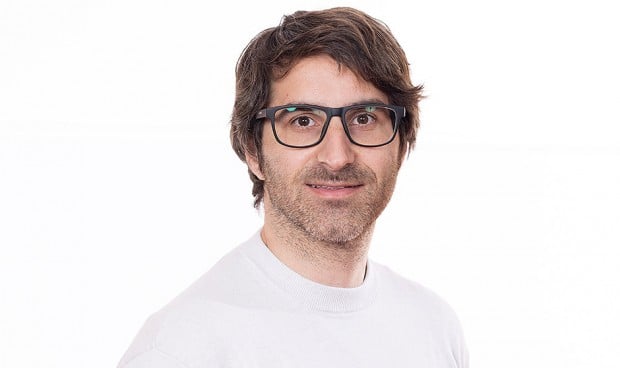The researcher Toni Celià-Terrassa, one of the leaders of the project.
Finding new treatments for metastatic breast cancer is one of the challenges that researchers have proposed Toni Celià-Terrassa and Joan Albanellstarting a project Hospital del Mar Medical Research Institute (IMIM-Hospital del Mar). Last week, the award ceremony for the III M. Chiara Giorgetti Award for research in metastatic breast cancer was held, and the project promoted by Celià-Terrassa and Albanell was recognized by the Metastatic Breast Cancer Association (CMM), in addition to receiving 100,000 euros to promote the project.
The biologist and biochemist Celià-Terrassa has explained in Medical Writing that “this project is designed for this type of calls and we carry it out specifically thanks to the granting of this award. From here on, it’s a very special award for the fact of coming directly from the Metastatic Breast Cancer Association. Patients with this pathology have urgent clinical needs and currently the prognosis is very bad. not curablethey need new therapeutic options and we believe that immunotherapy may be one of the best options if we avoid their resistance”.
|
“Immunotherapy may be one of the best options if we avoid its resistance” |
Despite the fact that the project is starting now, Celià-Terrassa affirms that his research group has spent time devoting itself to “studying how we can make the immunotherapy work better in breast cancerespecially the metastatic. We have preliminary data from a clinical trial of metastatic patients treated with immunotherapy. From here we were able to analyze what were the most represented genes in patients who do not benefit from the response to treatment, a all 17”.
In search of predicting the resistance of genes to immunotherapy
These genes represent the fundamental part of the translational studywhich lasts approximately two years. “With these genes the study begins with much larger cohorts of patients both at the transcriptional like tissue clinical sample, in addition to functional level. We want to understand if these genes are the responsible and the mechanism that makes immunotherapy not an option for these patients who did not achieve a positive response”, concludes the researcher.
To carry out this project, the Majorcan researcher hopes to have allies to be able to expand the cohort of patients: “We have collaborations with different groups and hospitals from different parts of the world, but we want contact more hospitals to see if this 17-gene pattern is the same in different patient cohorts for predict resistance to immunotherapy”.
|
“We want to understand if these genes are responsible for why immunotherapy is not an option” |
In addition, this project includes the use of preclinical models of resistance to immunotherapy, as Celià-Terrassa explains: “we achieved this signature of 17 genes with clinical data from patients, but we also filtered it with preclinical laboratory models where we had a transcriptional profile of genes overrepresented in resistance to immunotherapy. To narrow down a smaller list, we did the combination of clinical and preclinical data and the 17 genes came out. We will validate this result in clinical samples and we will also make a gene editing library with the CRISPR technology to see which of the 17 genes functionally contributes most strongly to immunotherapy resistance in preclinical tests in vivo, in mice”.
The results, keys for possible human trials
From here, the results of the study over the next two years will be vital in deciding the course of the project: “Once we know which of these genes or which combination is the one that promotes resistance, we will carry out preclinical trials trying to inhibit these targets with immunotherapy. After finishing this preclinical trial, depending on the results, we will first consider studying mice and, later, the possibility of transferring our findings to clinical trials”, confirms Celià-Terrassa.
–
Although it may contain statements, data or notes from health institutions or professionals, the information contained in Medical Writing is edited and prepared by journalists. We recommend the reader that any questions related to health be consulted with a health professional.


